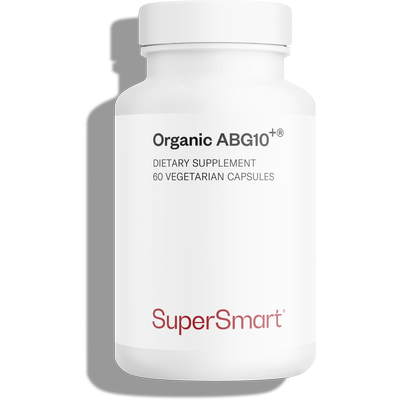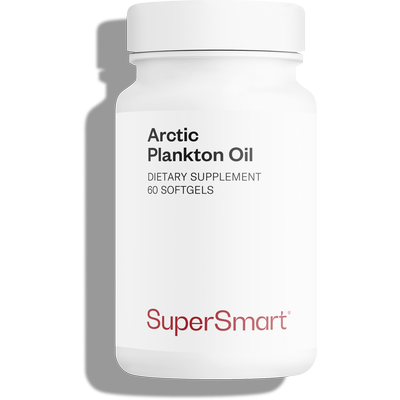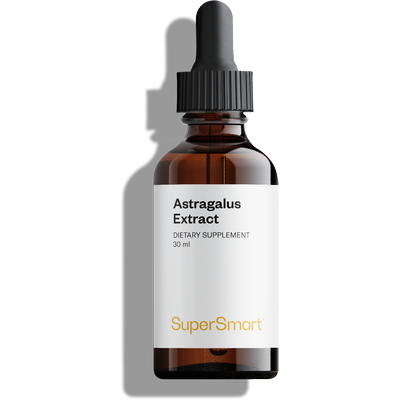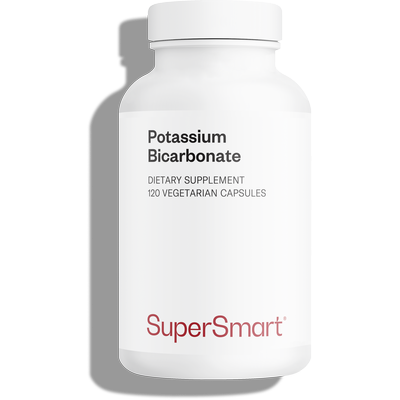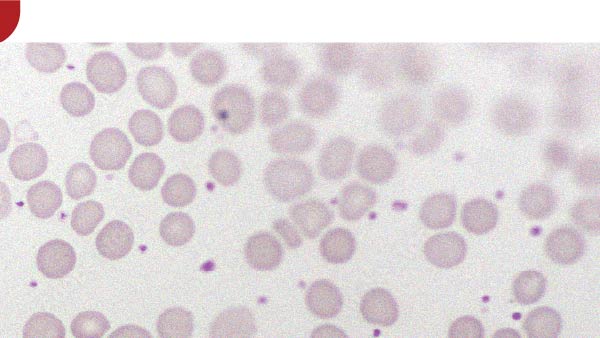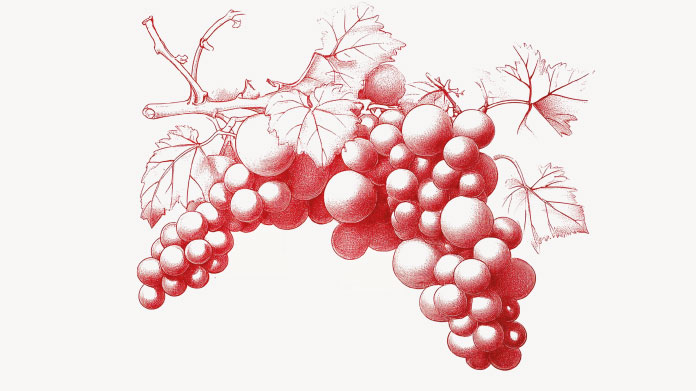8 tips for reducing your blood pressure naturally
Discover some simple measures for reducing your blood pressure (and therefore your risk of developing cardiovascular problems).

Quick reminder: what exactly is blood pressure?
The human heart acts as a pump, distributing blood to organs around the body. For this to function correctly, the blood pumping through arteries needs to be maintained at a certain force. This is referred to as ‘blood pressure’.
As a result of various factors (age, excess weight, smoking ...), too much pressure can sometimes be exerted on artery walls. Elevated blood pressure can cause weakening of the blood vessels, increased heart fatigue and the onset of various cardiovascular problems.
As a general guide, a normal blood pressure reading is considered to be 120/80 mm of mercury (mmHg): 120 is the systolic pressure (the pressure when your heart pushes blood out) and 80 is the diastolic pressure (the pressure when your heart rests between beats. Elevated blood pressure is considered to be 140/90mmHg or higher if taken at the doctor’s surgery, or 135/85mmHg if taken at home.
Discover now our 8 tips to help lower your blood pressure.
Some foods to avoid
Start by taking a look at your diet. Avoid salt where possible, as consuming too much can cause the body to retain water, leading to an increase in blood volume and a consequent rise in blood pressure. Salt can be replaced in cooking by herbs and spices. Watch out too for ‘hidden’ salt which is used abundantly in processed foods...
Avoid liquorice. It’s high in glycyrrhizin, a substance which increases sodium and water retention and thus causes a rise in blood pressure.
Eat less food high in unhealthy fats, such as sausages, ham, pâté … and cut down on alcohol . Finally, reduce your consumption of stimulants (tea, coffee ...), which increase the heart rate and elevate blood pressure (1).
Take exercise to lower your blood pressure
Physical activity helps to control blood pressure by aiding weight loss, relieving stress and making the arteries more flexible (2).
So put on your trainers and head off for a daily 30-minute walk, go jogging, do some gardening, use your bike to pick up your groceries from the local shops ...
The benefits of potassium on blood pressure
While our diets tend to be too high in salt and sodium, they’re often too low in potassium. Yet this excellent mineral is known to help maintain normal blood pressure(3).
You’ll find potassium in foods such as cumin seeds, tomato puree, ground ginger, and at higher concentrations, in potassium supplements (such as Potassium bicarbonate).
Keep stress at bay and improve your sleep
Stress, anxiety and sleep problems are also major factors in increasing blood pressure (4).
So it’s a good idea to try yoga or meditation, and allow yourself to benefit from longer, more restorative, sleep. Your arteries and cardiovascular system in general will thank you for it.
Consume omega-3s
The omega-3 fatty acids EPA and DHAnormal blood pressure (5). But remember that the body is unable to produce them itself so you have to get them from your diet.
Omega-3s are found in mackerel, sardines, kippers, chia seeds ... For an effective boost to your omega-3 intake, you could also opt for a high-quality fish oil supplement (such as Arctic Plankton Oil).
The virtues of astragalus for blood pressure
Astragalus (Astragalus membranaceus) is a plant from the Fabaceae family, which is very popular in traditional Chinese medicine. As well as being good for the body’s natural defences, it plays a particular role in maintaining normal blood pressure (6).
To benefit from astragalus’ properties, either make a herbal tea from it, or even better, take an astragalus supplement with a high polysaccharide content (such as Astragalus Extract, in liquid form that you take in drops).
Another useful plant in this respect is garlic, which supports healthy veins and blood vessels (7). Benefit, for example, from black garlic (with the supplement ABG10+®).
Do you smoke?
As you’ll already be aware, cigarettes are bad for the cardiovascular system. When you smoke, carbon monoxide enters your bloodstream. It then binds with red blood cells in the place of oxygen, potentially resulting in a lack of oxygen in the blood for which the body compensates … by increasing blood pressure (8).
What’s more, smoking exacerbates atheromatous plaque deposits in the arteries (these are essentially an accumulation of blood cells and bad cholesterol) and encourages the development of clots. Patches, apps or even hypnosis can help if you decide to give up smoking,.
Hawthorn and cardiovascular health
Hawthorn (Crataegus pinnatifida) is a small, thorny shrub, long-feted for its medicinal properties. Its flavonoid-rich leaves help, in particular, to maintain a healthy heart and cardiovascular system (9).
To benefit from a good intake of hawthorn, take an extract of hawthorn leaf such as that contained in the supplement Tensix. This synergistic formulation contains many other beneficial compounds too, including potassium, arginine, extract of celery seeds, etc.
SUPERSMART ADVICE
References
- Bazzano LA, Green T, Harrison TN, Reynolds K. Dietary approaches to prevent hypertension. Curr Hypertens Rep. 2013;15(6):694-702. doi:10.1007/s11906-013-0390-z
- Haute Autorité de santé. Prescription d’activité physique et sportive Hypertension artérielle. Septembre 2018
- Poorolajal J, Zeraati F, Soltanian AR, Sheikh V, Hooshmand E, Maleki A. Oral potassium supplementation for management of essential hypertension: A meta-analysis of randomized controlled trials. PLoS One. 2017;12(4):e0174967. Published 2017 Apr 18. doi:10.1371/journal.pone.0174967
- Spruill TM. Chronic psychosocial stress and hypertension. Curr Hypertens Rep. 2010;12(1):10-16. doi:10.1007/s11906-009-0084-8
- Filipovic MG, Aeschbacher S, Reiner MF, et al. Whole blood omega-3 fatty acid concentrations are inversely associated with blood pressure in young, healthy adults. J Hypertens. 2018;36(7):1548-1554. doi:10.1097/HJH.0000000000001728
- Denzler K, Moore J, Harrington H, et al. Characterization of the Physiological Response following In Vivo Administration of Astragalus membranaceus. Evid Based Complement Alternat Med. 2016;2016:6861078. doi:10.1155/2016/6861078
- Ried K, Frank OR, Stocks NP, Fakler P, Sullivan T. Effect of garlic on blood pressure: a systematic review and meta-analysis. BMC Cardiovasc Disord. 2008;8:13. Published 2008 Jun 16. doi:10.1186/1471-2261-8-13
- Ragueneau I, Michaud P, Démolis JL, Moryusef A, Jaillon P, Funck-Brentano C. Effects of cigarette smoking on short-term variability of blood pressure in smoking and non smoking healthy volunteers. Fundam Clin Pharmacol. 1999;13(4):501-7. doi: 10.1111/j.1472-8206.1999.tb00010.x. PMID: 10456293.
- Wang J, Xiong X, Feng B. Effect of crataegus usage in cardiovascular disease prevention: an evidence-based approach. Evid Based Complement Alternat Med. 2013;2013:149363. doi:10.1155/2013/149363
Keywords
13 Minutes
Es hat alles gestimmt
Es hat alles gestimmt. Top
marina thieme
3 Days
Great product
Great product, but still evaluating its effectiveness. Highly recommended. Super efficient delivery.
Chalise
7 Days
Quality products
Quality products , efficient and effective customer service. You can’t ask more
CLaudia
13 Days
Good quality product and customer service.
So far, I'm liking this product, and the customer service was very good.
ELZL
19 Days
The products I use are excel·lent
The products I use are excel·lent
ROSAS Josep Maria
27 Days
Delivery is prompt and I never saw a…
Delivery is prompt and I never saw a quality problem with the manufacturing. It is not possible to assess efficacy on a personal basis, since too many factors come into play. Efficacy can only be assessed statistically with a sufficient number of cases.
Roger De Backer
28 Days
I collaborates with the Supersmart…
I collaborates with the Supersmart more than 10 years. Every thing is going good. Quality of the things is good. Delivery comes in time. Five stars definitely !!!
Oleksiy
29 Days
All good
Simple, frictionless site, easy ordering, good delivery updates and execution.
Chris Robbins
31 Days
I feel better
I feel better
Peter Ammann
31 Days
Prompt delivery
Prompt delivery
JAKUB Radisch
32 Days
My new go-to for top quality supplements!
I am buying more and more of my supplements from this superb, high quality company. Cannot recommend it enough. Plus, excellent customer service with a quick, helpful team and speedy deliveries. Highly recommend Supersmart!
Cecilie H.
36 Days
SUPERSMART WHAT ELSE👍
SUPERSMART WHAT ELSE👍
DIEDERLE Christophe
39 Days
Excellent quality products with…
Excellent quality products with innovative formulas, as someone who has been suffering with acid reflux, these supplements have been lifesavers.
Oriana Moniz
39 Days
high quality supplement!
high quality supplement!
GALANT
39 Days
Good service prompt delivery
Good service prompt delivery
Mrs Marcella Reeves

